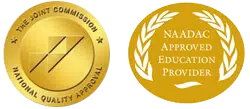Thousands of Americans complete rehab each year, starting on the path of sobriety after months or years of alcohol or drug abuse. Sometimes, sobriety takes a few tries, and relapse after treatment is common. For some people with Substance Use Disorder (SUD), however, even multiple inpatient or outpatient rehab trips don’t seem to stick. They may understand the nature of addiction and can even recite all 12 steps of a program, but 30-90 day treatment may not work for a certain class of drinkers. Families may wonder what happens when rehab doesn’t work.
Three Reasons That Rehab May Not Work
Lack of Good Aftercare Support
Treatment for SUD doesn’t stop when a client leaves a 30-day inpatient center, and truthfully, there is no real cure for severe SUD except abstinence, and even then, people struggle. This is why having a solid aftercare plan in place before leaving rehab is so important. Knowing what life will look like after treatment, from where you will live to making a relapse prevention plan to finding sober support near you, is critical.
Addiction is a chronic disease, and the people who have the most success staying sober are the ones who have layers of support in their aftercare, including outpatient treatment, individual therapy, group meetings, and a sponsor or sober mentor to help them when things get rough. A continuum of care plan involving consistent treatment of the addiction is something that many treatment cetners emphasize.
A Chronically Relapsing Individual
Unfortunately, some people are what is termed a chronic relapser or someone who has become resistant to traditional rehab treatment. An important component of therapy for addiction is facing trauma and the emotions that the drinker tried to dull with drinking, like shame, fear, guilt, loneliness, and resentment. Therapy can help addicts deal with these emotions with healthier coping mechanisms, but it does take hard work and can be emotionally painful, which is why so many people may turn to the “easier” route of drinking or using drugs.
Chronic relapses aren’t at the point of readiness for the emotional work needed to stay sober, and often will start drinking or using drugs right after leaving the treatment center.
Post-Accute Withdrawl Syndrome
Post-Acute Withdrawl Syndrome (PAWS) is a common phenomenon for alcoholics who have been drinking heavily for a long period of time. They take longer to be free of the mental and physical withdrawal symptoms of:
- Depression and anxiety
- Mood swings and irritability
- Fatigue, insomnia, or disrupted sleeping
- Low energy or no appetite
Typically around the 90-day mark, addicts may enter a sense of clarity in thinking, like a fog has lifted. However, if someone was “saturated” with alcohol, they may be unable to deal with the onset of PAWS, which can come and go over the course of the first three months of sobriety. Being prepared for this is part of creating an effective relapse prevention plan.
Do You Need Drug or Alcohol Treatment?
If you’re worried about your drug or alcohol use, or about that of a loved one, we can help. Baystate Recovery Center offers several levels of drug and alcohol treatment, and we can help people who have had multiple relapses. Part of our approach includes aftercare treatment, ongoing sober support, and family therapy to help you heal relationships and gain support at home. Contact us today for more information.
Baystate Recovery Center, a clinically Infused 12-Step Treatment Center for Drug and Alcohol Addiction, was founded by two partners in addiction treatment services, John Checchi and Michael Wilson.



